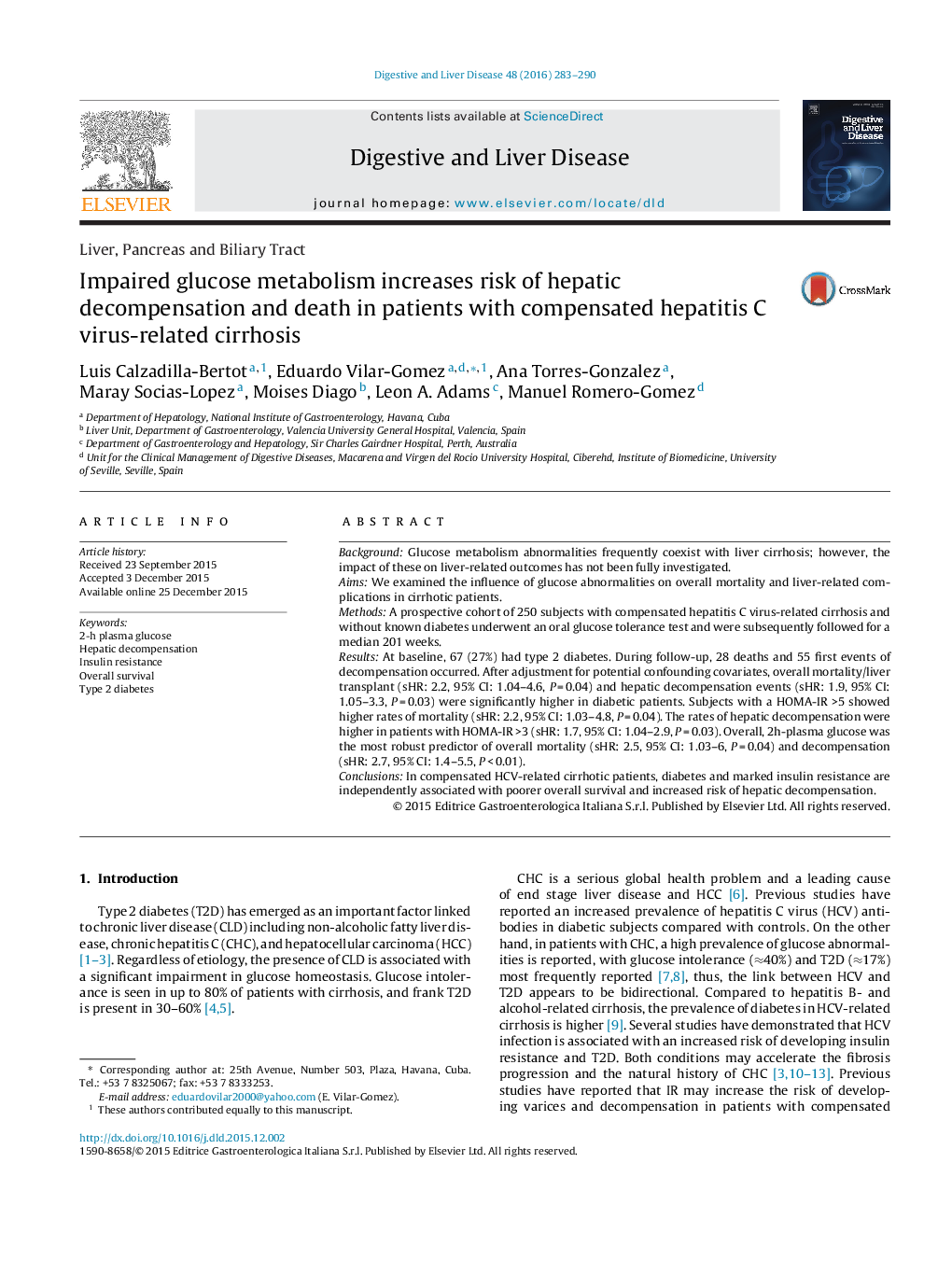| Article ID | Journal | Published Year | Pages | File Type |
|---|---|---|---|---|
| 6087991 | Digestive and Liver Disease | 2016 | 8 Pages |
BackgroundGlucose metabolism abnormalities frequently coexist with liver cirrhosis; however, the impact of these on liver-related outcomes has not been fully investigated.AimsWe examined the influence of glucose abnormalities on overall mortality and liver-related complications in cirrhotic patients.MethodsA prospective cohort of 250 subjects with compensated hepatitis C virus-related cirrhosis and without known diabetes underwent an oral glucose tolerance test and were subsequently followed for a median 201 weeks.ResultsAt baseline, 67 (27%) had type 2 diabetes. During follow-up, 28 deaths and 55 first events of decompensation occurred. After adjustment for potential confounding covariates, overall mortality/liver transplant (sHR: 2.2, 95% CI: 1.04-4.6, PÂ =Â 0.04) and hepatic decompensation events (sHR: 1.9, 95% CI: 1.05-3.3, PÂ =Â 0.03) were significantly higher in diabetic patients. Subjects with a HOMA-IR >5 showed higher rates of mortality (sHR: 2.2, 95% CI: 1.03-4.8, PÂ =Â 0.04). The rates of hepatic decompensation were higher in patients with HOMA-IR >3 (sHR: 1.7, 95% CI: 1.04-2.9, PÂ =Â 0.03). Overall, 2h-plasma glucose was the most robust predictor of overall mortality (sHR: 2.5, 95% CI: 1.03-6, PÂ =Â 0.04) and decompensation (sHR: 2.7, 95% CI: 1.4-5.5, PÂ <Â 0.01).ConclusionsIn compensated HCV-related cirrhotic patients, diabetes and marked insulin resistance are independently associated with poorer overall survival and increased risk of hepatic decompensation.
